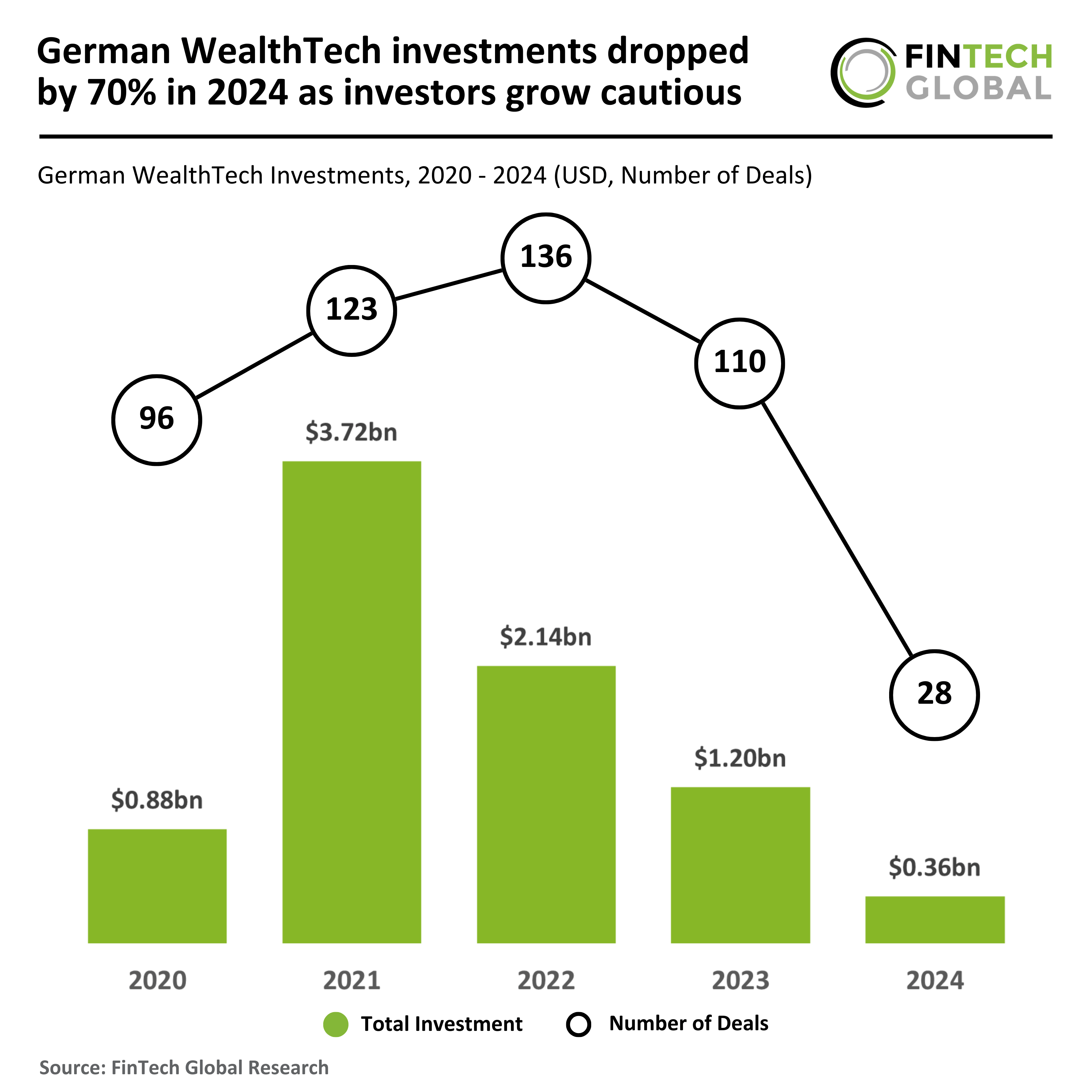German WealthTech Investments Plummet 70% in 2024 as Investor Caution Surges
In 2024, the German WealthTech sector faced a dramatic decline in investment activity, marking a significant shift in the financial technology landscape. With a year-on-year drop of 70% in funding, investors are adopting a more cautious approach amidst economic uncertainties and evolving regulations.
Decline in German WealthTech Investments
The year 2024 witnessed a striking decrease in WealthTech investments in Germany. The statistics reveal:
- A total of 28 deals were recorded, reflecting an 82% decrease from 154 deals in 2023.
- Total funding for the sector plummeted to $362 million, a 70% drop from the previous year’s $1.204 billion.
This downturn indicates a substantial pullback in capital commitments, as investors become increasingly skeptical in light of current economic conditions.
Average Deal Value and Investor Caution
In 2024, the average deal value decreased to $12.9 million, down 10% from $13.7 million in 2023. Key factors influencing this trend include:
- Stable deal sizes despite the overall volume decline.
- Increased investor focus on established firms with proven business models.
This shift highlights a preference for selective investments that align with long-term market demands, such as digital wealth management and AI-driven financial planning.
Key Players in the German WealthTech Space
Amidst the challenging landscape, QPLIX, a prominent German WealthTech firm, secured one of the largest funding rounds of the year at $26.5 million. This investment was provided by Partech through its Growth Fund, enhancing QPLIX’s capabilities in wealth management software for family offices and private banks.
Expansion Plans for QPLIX
The recent funding will propel QPLIX’s international expansion into strategic markets, including:
- France
- Switzerland
- The United Kingdom
- The Middle East
- The APAC region
QPLIX offers a comprehensive digital asset management solution that integrates various asset classes, providing advanced analytics and customizable reporting features. With over $300 billion in assets managed on its platform, the company is poised for further growth in the WealthTech industry.
Conclusion
The current state of the German WealthTech sector underscores the need for firms to adapt to a more cautious investment climate. Emphasizing profitability and innovative product offerings will be crucial for attracting investments in this evolving landscape.
For more insights on WealthTech trends and investment strategies, visit our related articles on WealthTech Trends and Investment Strategies.







